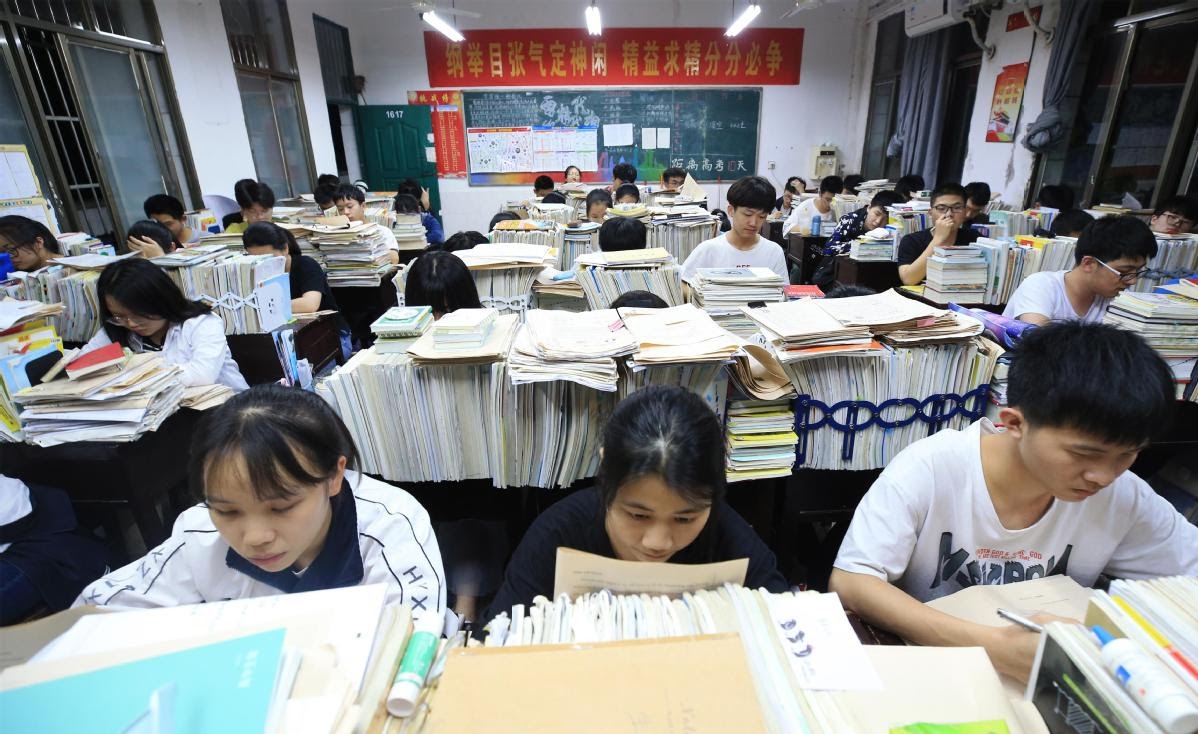Top Shanghai middle school under fire for poverty-shaming parents
A prestigious private middle school in Shanghai has drawn online anger after publishing an article that asked parents to make sure they are rich enough — and educated enough — to enroll their children before applying.

A prestigious private middle school in Shanghai has drawn online anger after publishing an article that asked parents to make sure they are rich enough — and educated enough — to enroll their children before applying.
At the center of the controversy is the middle school affiliated with No. 2 High School of East China Normal University, one of the top middle schools in the city. The since-deleted article (in Chinese), published on the institution’s official WeChat blog on May 1, was titled “Sending your children to our school. Have you really thought it through?”
At its essence, the post was part not-so-humble brag about the school’s accomplishments and part harshly worded letter to discourage parents deemed unqualified to have their children enrolled. In the article, the school credited part of its academic success to a “powerful community of parents,” who were able to teach a long list of electives on subjects such as engineering, photography, and entrepreneurship. It also flaunted its superior extracurricular activities and academic programs, including trips to Shanghai’s Disneyland, watching musical performances, and traveling abroad for summer camps.
“Needless to say, given that we are a private school, parents need to pay for most of these activities,” the school wrote. “Private education entails substantial costs. You need to think carefully about it.”
The article also complained about the lottery-based admissions system introduced by China’s education authorities last year, saying that the new policy, which requires even private schools to select students through a random computerized system when applications exceed quotas, seriously undermined its rights in choosing the students who best suit the school’s atmosphere.
“Before the policy change, we were allowed to conduct in-person interviews with students. It’s like a blind date, where we had the opportunity to learn about each other and see if we are a good match,” the school said. “But now we are like an unwed girl sitting at home. We fear that some people will mess around with us.”
Also included in the article was a self-assessment chart designed to let parents measure their financial and intellectual capabilities. The questions include how much time they can devote to teaching elective courses, whether they will fret about the costs of extracurricular activities, and their opinions about the new lottery system.
When the original post was shared on Chinese social media, it provoked a mix of indignation and debate about whether it’s reasonable for the school to have a condescending attitude toward low-income families and parents with a poor educational background.
On Weibo, some criticized the school for its arrogance and elitism, saying that its preference for middle- to upper-class parents would further cement educational divisions and make social mobility impossible. “They should at least have some respect for students with mediocre grades or those from low-income families. A prestigious school should be more inclusive,” a Weibo user wrote.
Others came to the school’s defense, arguing that considering its accomplishments in the past, critics shouldn’t be angry about the school being transparent about its admission preferences. “They were just stating facts. It’s like you want to buy a $500 million mansion with a modest income. Obviously, you are shooting for the Moon. They were just giving you a friendly reminder,” a Weibo user commented.
Some education policy experts also weighed in. In an opinion piece (in Chinese) published by the Beijing News, education scholar Xióng Bǐngqí 熊丙奇 noted that the underlying message of the article was against the spirit of the new lottery system, which was to make the competition for private schools less cutthroat.
The middle school issued a statement (in Chinese) on May 2, apologizing for the article, which it said was against the admissions principles and guidelines required by China’s education authorities. “We will develop a better understanding of education and try to protect the legitimate interests of all students and parents,” it said. Meanwhile, the Education Ministry of Shanghai publicly denounced the school for “inappropriate content,” promising an investigation.
Over the years, the frenzy over getting children into elite private schools in China — and the fierce competition that comes with it — has been well documented. In 2017, two private elementary schools in Shanghai were admonished by authorities for requiring parents of prospective students to take tests and complete questionnaires detailing their own educational and professional credentials.
Even parents of pre-kindergarten kids have to sweat over prestigious early education programs, exemplified by a five-year-old boy’s 15-page resume that went viral in 2018. The lengthy document was created by the boy’s father as part of an application package required by a private school in Shanghai.






